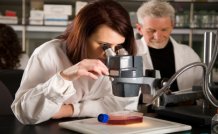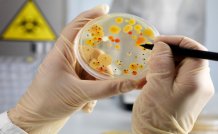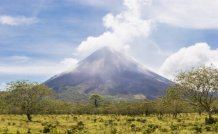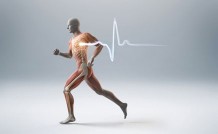Online Class: Microbiology 101
Our comprehensive online course on microbiology covers all aspects of microbiology and includes an accredited CEU Certificate at successful class completion.

$85.00
no certificate
no certificate
- OR -
$110.00
with CEU Certificate*
with CEU Certificate*
Start Right Now!
$110.00 (with CEU Certificate)
Taking multiple courses? Save with our platinum program.
-
29Lessons
-
52Exams &
Assignments -
2,482Students
have taken this course -
30Hours
average time -
3.0CEUs
Course Description
Our comprehensive online course on microbiology covers all aspects of microbiology and includes a CEU Certificate at successful class completion.
The study of microbiology is extremely rewarding, leading to advances in the welfare of the environment as well as human populations. Pursuing this fascinating subject lead to careers in biotechnology, pharmaceutical manufacturing, medical research and forensics among other challenging professions.
The study of microbiology is extremely rewarding, leading to advances in the welfare of the environment as well as human populations. Pursuing this fascinating subject lead to careers in biotechnology, pharmaceutical manufacturing, medical research and forensics among other challenging professions.
Regardless of whether you are a serious student considering a career in microbiology or a layperson who just wants to learn everything you can about the world around you, Microbiology 101 is guaranteed to change the way you look at the world.
What will you gain by taking this course?
-
Learn the history and frequently used Microbiology terminology
-
Understand Composition and the chemical basis of Microbiology
-
Microscopy and the process of Microbial metabolism, cultivation and growth
-
Microbial Genetics
-
Bacteria, viruses and fungi
-
Understand the development of Infectious diseases as well as the process of the body defense systems
-
An exploration of Microbiology and Environmental studies
-
And many other topics will be discussed in this study
Join us in the comprehensive online course as we explore in detail all aspects of microbiology.
- Completely Online
- Self-Paced
- 6 Months to Complete
- 24/7 Availability
- Start Anytime
- PC & Mac Compatible
- Android & iOS Friendly
- Accredited CEUs

Course Lessons
Lesson 1. Introduction to Microbiology
In broad terms, microbiology is the study of living creatures that are invisible or indistinct to the naked eye because of their extremely small size.
Additional lesson topics: What Is Microbiology?; Microbiology
35 Total Points
 Lesson 1 Video
Lesson 1 Video Lesson discussions: Reasons for Taking this Course
Lesson discussions: Reasons for Taking this Course Complete: Assignment 1: Introduction to Microbiology Assignment
Complete: Assignment 1: Introduction to Microbiology Assignment Assessment: Quiz 1: Introduction to Microbiology Exam
Assessment: Quiz 1: Introduction to Microbiology Exam
Lesson 2. Microbiology Terms
As with all scientific disciplines, microbiologists have developed a vocabulary specific to their field.
Additional lesson topics: Microbiology Glossary
35 Total Points
 Lesson 2 Video
Lesson 2 Video Complete: Assignment 2: Microbiology Terms Assignment
Complete: Assignment 2: Microbiology Terms Assignment Assessment: Quiz 2: Microbiology Terms Exam
Assessment: Quiz 2: Microbiology Terms Exam
Lesson 3. History of Microbiology
Generally speaking, the field of microbiology started with the invention of the microscope.
Additional lesson topics: Early History of Microbiology
35 Total Points
 Lesson 3 Video
Lesson 3 Video Complete: Assignment 3: History of Microbiology Assignment
Complete: Assignment 3: History of Microbiology Assignment Assessment: Quiz 3: History of Microbiology Exam
Assessment: Quiz 3: History of Microbiology Exam
Lesson 4. Composition
The majority of people equate microbes with disease, but those only account for a fraction of those unseen life forms. Microbes live in every corner of the planet.
Additional lesson topics: Taxonomy; Carl Linnaeus
35 Total Points
 Lesson 4 Video
Lesson 4 Video Complete: Assignment 4: Composition Assignment
Complete: Assignment 4: Composition Assignment Assessment: Quiz 4: Composition Exam
Assessment: Quiz 4: Composition Exam
Lesson 5. The Chemical Basis of Microbiology
In the 1700s, scientists began to understand the chemical and physical basis of life and quickly realized that the chemistry of all living organisms shared many similarities.
Additional lesson topics: Cells Alive; Atomic Structure
35 Total Points
 Lesson 5 Video
Lesson 5 Video Complete: Assignment 5: The Chemical Basis of Microbiology Assignment
Complete: Assignment 5: The Chemical Basis of Microbiology Assignment Assessment: Quiz 5: The Chemical Basis of Microbiology Exam
Assessment: Quiz 5: The Chemical Basis of Microbiology Exam
Lesson 6. Prokaryotes and Eukaryotes
The vast majority of life on Earth can be classified as either prokaryotes or eukaryotes.
Additional lesson topics: Prokaryotes, Eukaryotes, and Viruses; Eukaryotes
35 Total Points
 Lesson 6 Video
Lesson 6 Video Complete: Assignment 6: Prokaryotes and Eukaryotes Assignment
Complete: Assignment 6: Prokaryotes and Eukaryotes Assignment Assessment: Quiz 6: Prokaryotes and Eukaryotes
Assessment: Quiz 6: Prokaryotes and Eukaryotes
Lesson 7. Microbial Metabolism
Microbial metabolism is how microorganisms get the energy and nutrients that they need to live and reproduce.
Additional lesson topics: Microbial Metabolism; ATP
35 Total Points
 Lesson 7 Video
Lesson 7 Video Complete: Assignment 7: Microbial Metabolism Assignment
Complete: Assignment 7: Microbial Metabolism Assignment Assessment: Quiz 7: Microbial Metabolism Exam
Assessment: Quiz 7: Microbial Metabolism Exam
Lesson 8. Microbial Cultivation and Growth
Just as people need oxygen, plants need sunlight, and fish need water to survive, different microorganisms need specific chemical and physical environments for their growth and survival.
35 Total Points
 Lesson 8 Video
Lesson 8 Video Complete: Assignment 8: Microbial Cultivation and Growth Assignment
Complete: Assignment 8: Microbial Cultivation and Growth Assignment Assessment: Quiz 8: Microbial Cultivation and Growth Exam
Assessment: Quiz 8: Microbial Cultivation and Growth Exam
Lesson 9. Microbial Genetics
All characteristics of microorganisms, and every other living thing, are determined by their genes. More specifically, information stored in macromolecules called nucleic acids that are passed on from one generation to the next through the organism's DNA.
Additional lesson topics: Microbial Genetics Resources
10 Total Points
 Lesson 9 Video
Lesson 9 Video Assessment: Quiz 9: Microbial Genetics Exam
Assessment: Quiz 9: Microbial Genetics Exam
Lesson 10. DNA and Gene Expression
Deoxyribonucleic acid (DNA) has often been called the blueprint of life, because the characteristics of all life forms ultimately depend upon the information specified by DNA.
Additional lesson topics: Protein Synthesis; How DNA Works
10 Total Points
 Lesson 10 Video
Lesson 10 Video Assessment: Quiz 10: DNA and Gene Expression Exam
Assessment: Quiz 10: DNA and Gene Expression Exam
Lesson 11. The Bacteria
Bacteria come in a great many sizes and several shapes.
Additional lesson topics: Introduction to Bacteria
35 Total Points
 Lesson 11 Video
Lesson 11 Video Lesson discussions: Microbes
Lesson discussions: Microbes Complete: Assignment 11: The Bacteria Assignment
Complete: Assignment 11: The Bacteria Assignment Assessment: Quiz 11: The Bacteria Exam
Assessment: Quiz 11: The Bacteria Exam
Lesson 12. The Viruses
Viruses have the same general structure, genetic material in the form of either DNA or RNA surrounded by a protein coat and, in some cases, an outer membrane.
Additional lesson topics: Introduction to Viruses; How Viruses Work
35 Total Points
 Lesson 12 Video
Lesson 12 Video Complete: Assignment 12: The Viruses Assignment
Complete: Assignment 12: The Viruses Assignment Assessment: Quiz 12: The Viruses
Assessment: Quiz 12: The Viruses
Lesson 13. The Fungi
Over the last 10 years, the incidence of serious fungal infections has been increasing.
Additional lesson topics: Introduction to the Fungi
35 Total Points
 Lesson 13 Video
Lesson 13 Video Complete: Assignment 13: The Fungi Assignment
Complete: Assignment 13: The Fungi Assignment Assessment: Quiz 13: The Fungi Exam
Assessment: Quiz 13: The Fungi Exam
Lesson 14. The Unicellular Algae
The term algae describes a large and diverse group of microorganisms that contains over 22,000 species.
Additional lesson topics: Algae; Plankton
35 Total Points
 Lesson 14 Video
Lesson 14 Video Complete: Assignment 14: The Algae Assignment
Complete: Assignment 14: The Algae Assignment Assessment: Quiz 14: The Unicellular Algae Exam
Assessment: Quiz 14: The Unicellular Algae Exam
Lesson 15. The Protozoa
The term protozoan means "first animal," which generally describes its animal-like nutrition.
35 Total Points
 Lesson 15 Video
Lesson 15 Video Complete: Assignment 15: The Protozea Assignment
Complete: Assignment 15: The Protozea Assignment Assessment: Quiz 15: The Protozea Exam
Assessment: Quiz 15: The Protozea Exam
Lesson 16. The Host-Parasite Relationship
A rather delicate balance exists between our defenses and the pathogenic mechanisms of microorganisms.
10 Total Points
 Lesson 16 Video
Lesson 16 Video Assessment: Quiz 16: The Host-Parasite Relationship Exam
Assessment: Quiz 16: The Host-Parasite Relationship Exam
Lesson 17. The Development of Infectious Disease
Pathogens can gain access to the human body and other hosts through several avenues, which are called portals of entry.
Additional lesson topics: Infectious Disease; Infectious Diseases
10 Total Points
 Lesson 17 Video
Lesson 17 Video Assessment: Quiz 17: The Development of Infectious Disease Exam
Assessment: Quiz 17: The Development of Infectious Disease Exam
Lesson 18. Nonspecific Body Defense
When our bodies are challenged by microbes, we defend ourselves by utilizing our various mechanisms of immunity.
Additional lesson topics: The Immune System; Phagocytosis
10 Total Points
 Lesson 18 Video
Lesson 18 Video Assessment: Quiz 18: Nonspecific Body Defense Exam
Assessment: Quiz 18: Nonspecific Body Defense Exam
Lesson 19. The Skin
The science of skin medicine is referred to as dermatology.
Additional lesson topics: Skin; Human Skin
35 Total Points
 Lesson 19 Video
Lesson 19 Video Complete: Assignment 19: The Skin Assignment
Complete: Assignment 19: The Skin Assignment Assessment: Quiz 19: The Skin Exam
Assessment: Quiz 19: The Skin Exam
Lesson 20. The Eyes
The science of eye medicine is referred to as ophthalmology.
Additional lesson topics: How the Eye Sees; The Human Eye
35 Total Points
 Lesson 20 Video
Lesson 20 Video Complete: Assignment 20: The Eyes Assignment
Complete: Assignment 20: The Eyes Assignment Assessment: Quiz 21: The Eyes Exam
Assessment: Quiz 21: The Eyes Exam
Lesson 21: The Cardiovascular and Lymphatic Systems
The cardiovascular and lymphatic systems are responsible for the body's circulation, and are studied by cardiologists and immunologists.
Additional lesson topics: Lymphatic System
35 Total Points
 Lesson 21 Video
Lesson 21 Video Lesson discussions: Human Systems
Lesson discussions: Human Systems Complete: Assignment 21: The Cardiovascular and Lymphatic Systems Assignment
Complete: Assignment 21: The Cardiovascular and Lymphatic Systems Assignment Assessment: Quiz 21: The Cardiovascular and Lymphatic Systems Exam
Assessment: Quiz 21: The Cardiovascular and Lymphatic Systems Exam
Lesson 22. The Respiratory System
Diseases and disorders that affect the respiratory system can cause problems in the lungs, the nerves, and muscles that allow breathing in the lungs, and the respiratory tract that leads air down into the lungs while breathing.
Additional lesson topics: The Respiratory System
10 Total Points
 Lesson 22 Video
Lesson 22 Video Assessment: Quiz 22: The Respiratory System Exam
Assessment: Quiz 22: The Respiratory System Exam
Lesson 23. The Nervous System
Diseases and disorders that affect the nervous system can affect either the brain, spinal cord, or the network of nerves to which the brain and spine are connected.
Additional lesson topics: The Nervous System; Nervous System Diseases
35 Total Points
 Lesson 23 Video
Lesson 23 Video Complete: Assignment 23: The Nervous System
Complete: Assignment 23: The Nervous System Assessment: Quiz 23: The Nervous System
Assessment: Quiz 23: The Nervous System
Lesson 24. The Digestive System
Diseases and disorders of the digestive system can include everything from the mouth to the stomach, and the stomach to the digestive tract, and associated organs.
Additional lesson topics: The Digestive System
35 Total Points
 Lesson 24 Video
Lesson 24 Video Complete: Assignment 24: The Digestive System
Complete: Assignment 24: The Digestive System Assessment: Quiz 24: The Digestive System Exam
Assessment: Quiz 24: The Digestive System Exam
Lesson 25. The Reproductive System
The reproductive system is both a victim of diseases and disorders as well as a vehicle for disease transmission for diseases both related and unrelated to the reproductive system.
Additional lesson topics: The Reproductive System; Reproductive System Diseases
35 Total Points
 Lesson 25 Video
Lesson 25 Video Complete: Assignment 25: The Reproductive System
Complete: Assignment 25: The Reproductive System Assessment: Quiz 25: The Reproductive System Exam
Assessment: Quiz 25: The Reproductive System Exam
Lesson 26. The Immune System
The immune system is composed of the white blood cells and their accompanying components that combat pathogens in the human body.
Additional lesson topics: Diseases of the Immune System
35 Total Points
 Lesson 26 Video
Lesson 26 Video Complete: Assignment 26: The Immune System
Complete: Assignment 26: The Immune System Assessment: Quiz 26: The Immune System Exam
Assessment: Quiz 26: The Immune System Exam
Lesson 27. Soil Microbiology
Soil genesis is a long-term event that produces the stable environment in which microbiological cycles and processes occur.
Additional lesson topics: Nutrient Recycling
10 Total Points
 Lesson 27 Video
Lesson 27 Video Assessment: Quiz 27: Soil Microbiology Exam
Assessment: Quiz 27: Soil Microbiology Exam
Lesson 28. Aquatic Microbiology
There are between four and five thousand species of phytoplankton on earth, organisms defined as any microscopic, photosynthetic (or partially photosynthetic) organism that lives in or partially in water.
Additional lesson topics: Bacteria at Hydrothermal Vents
35 Total Points
 Lesson 28 Video
Lesson 28 Video Lesson discussions: Hydrothermal Vents
Lesson discussions: Hydrothermal Vents Complete: Assignment 28: Aquatic Microbiology Assignment
Complete: Assignment 28: Aquatic Microbiology Assignment Assessment: Quiz 28: Aquatic Microbiology Exam
Assessment: Quiz 28: Aquatic Microbiology Exam
Lesson 29. Microbiology in the Environment and in Us
Microbiology serves several major functions in our food.
Additional lesson topics: Penicillin; Helpful Microbes in Daily Life
120 Total Points
 Lesson 29 Video
Lesson 29 Video Lesson discussions: Course Completion Poll: Your Thoughts; Program Evaluation Follow-up Survey (End of Course); Course Comments
Lesson discussions: Course Completion Poll: Your Thoughts; Program Evaluation Follow-up Survey (End of Course); Course Comments Complete: Assignment 29: Microbiology in the Environment and Us
Complete: Assignment 29: Microbiology in the Environment and Us Assessment: Quiz 29: Microbiology in the Environment and Us Exam
Assessment: Quiz 29: Microbiology in the Environment and Us Exam Assessment: The Final Exam
Assessment: The Final Exam
925
Total Course Points
Learning Outcomes
By successfully completing this course, students will be able to:
- Define microbiology and microbiology terms
- Summarize history of microbiology.
- Define the chemical basis of microbiology.
- Summarize prokaryotes and eukaryotes.
- Describe microbial metabolism.
- Describe microbial cultivation and growth.
- Summarize microbial genetics and DNS and gene expression
- Describe the bacteria.
- Describe the viruses.
- Identify the fungi, unicellular algae and the protozoa.
- Summarize the host-parasite relationship.
- Identify the development of infectious disease.
- Describe role of microbiology in the eyes and skin.
- Describe the role of microbiology in cardiovascular and lymphatic systems, respiratory systems, nervous systems, digestive systems.
- Describe the role of microbiology in the reproductive systems and the immune systems.
- Summarize soil microbiology.
- Summarize aquatic microbiology.
- Demonstrate mastery of lesson content at levels of 70% or higher.
Additional Course Information

- Document Your Lifelong Learning Achievements
- Earn an Official Certificate Documenting Course Hours and CEUs
- Verify Your Certificate with a Unique Serial Number Online
- View and Share Your Certificate Online or Download/Print as PDF
- Display Your Certificate on Your Resume and Promote Your Achievements Using Social Media

Course Title:
Microbiology 101
Course Number:
8900081
Lessons Rating:
4.6 / 5 Stars
(3,123 votes)
Languages:
English - United States, Canada and other English speaking countries
Category:
Availability:
This course is online and available in all 50 states including: California, Florida, Georgia, Illinois, New York, Pennsylvania, Ohio, and Texas.
Last Updated:
May 2022
Course Type:
Self-Paced, Online Class
CEU Value:
3.0 IACET CEUs (Continuing Education Units)
CE Accreditation:
Universal Class, Inc. has been accredited as an Authorized Provider by the International Association for Continuing Education and Training (IACET).
Grading Policy:
Earn a final grade of 70% or higher to receive an online/downloadable CEU Certification documenting CEUs earned.
Assessment Method:
Lesson assignments and review exams
Instructor:
April Graves
Syllabus:
View Syllabus
Course Fee:
$110.00 U.S. dollars
Choose Your Subscription Plan
Course Only
One Course
No Certificate / No CEUs
No Certificate / No CEUs
$85
for 6 months
Billed once
This course only
This course only
| Includes certificate | X |
| Includes CEUs | X |
| Self-paced |

|
| Instructor support |

|
| Time to complete | 6 months |
| No. of courses | 1 course |
Certificate Course
One Course
Certificate & CEUs
Certificate & CEUs
$110
for 6 months
Billed once
This course only
This course only
| Includes certificate |

|
| Includes CEUs |

|
| Self-paced |

|
| Instructor support |

|
| Time to complete | 6 months |
| No. of courses | 1 course |
Platinum Yearly
ALL COURSES
Certificates & CEUs
Certificates & CEUs
$189
per year
Billed once
Includes all 600+ courses
Includes all 600+ courses
| Includes certificate |

|
| Includes CEUs |

|
| Self-paced |

|
| Instructor support |

|
| Time to complete | 12 Months |
| No. of courses | 600+ |
Platinum 2 Years
ALL COURSES
Certificates & CEUs
Certificates & CEUs
$299
for 2 years
You save $79.00!
Billed once
Includes all 600+ courses
Includes all 600+ courses
| Includes certificate |

|
| Includes CEUs |

|
| Self-paced |

|
| Instructor support |

|
| Time to complete | 24 Months |
| No. of courses | 600+ |
Student Testimonials
- "I think my instructor did a wonderful job with this course. Her interaction and motivating comments helped me to complete this course. I plan to encourage others to take her course and I plan to enroll in another one." -- Andrew E.
- "This course has been very interesting. It's helped me to develop a much deeper understanding of things I was slightly familiar with and changed many misconceptions I had about biological processes and terminology." -- Dennis A.
- "Brilliant information, I have learnt so much and told to me in words I can understand and never felt out paced or over my head and my instructor was very patient with me initially while I learned how to upload my assignment. Thanks again." -- Gretta F.
Related Courses
-
 8 hours
0.8 CEUs
Cosmology 101: A Simple Guide to the Universe
$95.00
8 hours
0.8 CEUs
Cosmology 101: A Simple Guide to the Universe
$95.00
-
 14 hours
1.4 CEUs
Ecology 101
$95.00
14 hours
1.4 CEUs
Ecology 101
$95.00
-
 35 hours
3.5 CEUs
Biology 101
$95.00
35 hours
3.5 CEUs
Biology 101
$95.00
-
 9 hours
0.9 CEUs
Meteorology Fundamentals
$95.00
9 hours
0.9 CEUs
Meteorology Fundamentals
$95.00
-
 10 hours
1.0 CEUs
Healthcare Code and Conduct
$95.00
10 hours
1.0 CEUs
Healthcare Code and Conduct
$95.00
-
 8 hours
0.8 CEUs
Geology 101
$95.00
8 hours
0.8 CEUs
Geology 101
$95.00
-
 7 hours
0.7 CEUs
History of the Universe
$95.00
7 hours
0.7 CEUs
History of the Universe
$95.00
-
 7 hours
0.7 CEUs
Concussions 101
$95.00
7 hours
0.7 CEUs
Concussions 101
$95.00
-
 18 hours
1.8 CEUs
Introduction to Cell and Molecular Biology
$95.00
18 hours
1.8 CEUs
Introduction to Cell and Molecular Biology
$95.00
-
 17 hours
1.7 CEUs
ICD-10: Medical Coding
$140.00
17 hours
1.7 CEUs
ICD-10: Medical Coding
$140.00
-
 7 hours
0.7 CEUs
Geography 101
$95.00
7 hours
0.7 CEUs
Geography 101
$95.00
-
 7 hours
0.7 CEUs
Astronomy 101
$95.00
7 hours
0.7 CEUs
Astronomy 101
$95.00
-
 20 hours
2.0 CEUs
Chemistry 101
$95.00
20 hours
2.0 CEUs
Chemistry 101
$95.00








